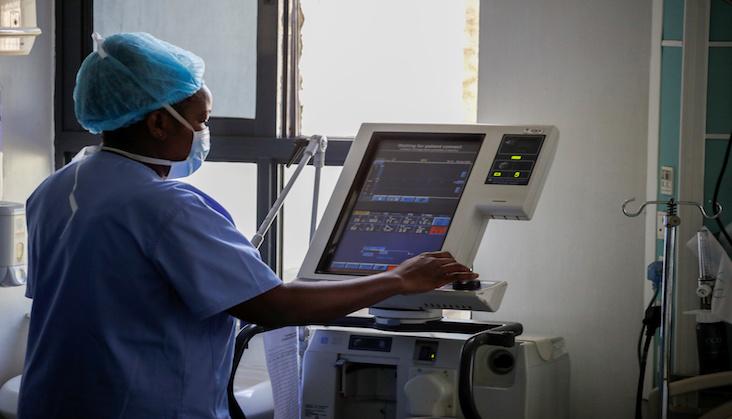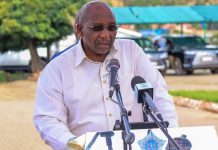Africa-Press – Lesotho. The virus causing COVID-19 continues to spread throughout the planet, threatening both millions of lives, and the global economy. Governments, multilateral institutions and investors are taking urgent action to respond to the health and economic crises.
Meanwhile, we are working on identifying loopholes that are allowing billions, if not trillions, of dollars in public funds to be siphoned off in criminal activities and through sleight of hand, including draining resources from the crisis responses.
Even prior to COVID-19, grand scale corruption flourished, tax avoidance and evasion were endemic, and money laundering controls were insufficient. Now, there are already stories of rampant corruption and profiteering while COVID-19 victims are dying.
The crisis is also highlighting the importance of stable tax bases in order to fund universal health care and health systems, as well as social protection floors that guarantee livelihoods.
Due to scarce public health resources, weak revenue generation, heavy debt obligations and declining official development assistance, poorer countries are also likely to pay the highest price from the pandemic.
It was “normal” times that prompted the President of the United Nations General Assembly and the President of the United Nations Economic and Social Council to appoint us to chair a High-level Panel on International Financial Accountability, Transparency and Integrity for Achieving the 2030 Agenda.
The Panel was tasked to identify gaps and obstacles in the international system that allow nefarious practices. Now, with COVID-19 related-economic crises looming, we are even more convinced that the world needs a renewed commitment to financial integrity.
Criminal and abusive financial activity is a global phenomenon. Witness revelations on corruption at international sports body FIFA, alleged pilfering of state funds at 1MDB, and the many revelations of tax abuse in the Panama and Paradise papers.
Furthermore, the negative impact of illicit financial flows on the ability of countries to achieve their national developmental priorities has been the subject of international discussion in recent times.
It is said that countries lose substantial resources through different sources of illicit financial flows such as corruption, crime and illicit commercial activities.
Nearly five years ago, the AU High-Level Panel on Illicit Financial Flows from Africa, chaired by H. E Thabo Mbeki, concluded that more than US $50 billion are lost every year from Africa because of financial malfeasance.
These are facilitated in part by the existence of tax havens and secrecy jurisdictions that facilitate the existence and operation of disguised corporations, anonymous trust accounts and fake charitable foundations.
Developing countries are some of the most at risk to financial malpractice. They have weaker capacities, meaning their tax enforcement agencies lack skilled staff and hardware and software necessary to enforce their own laws, not to mention implement international standards.
Our Panel’s work has begun by focusing on anti-corruption measures, improving cooperation in tax matters, and resolving disputes. However, to bear fruit, the Panel will need to be a collective effort.
We will build on the input of stakeholders, the research of academics, the practical experience of companies and the financial sector, and the needs of governments.
We already know that the entire international community needs to step up. Countries can take action nationally by strengthening institutions and law enforcement, and better implementing existing national commitments.
But we must do this together, as tax abuses and corruption often result in funds crossing borders and being hidden away. Multilateralism can be effective.
For example, there have been significant improvements in combatting the financing of terrorism. Some countries will need help to strengthen their capacities. Others will need to build political will to enact change.
By acting globally and improving international cooperation, we can find ways to build stronger financial systems that are impervious to those tempted to try exploit loopholes or mismatches in rules.
More than ever, the High-Level Panel that we chair remains committed to pursue its work. We are determined to contribute to the creation of global and national financial systems that are clean, fair and equitable.
The pandemic should serve as an argument to improve good governance and the rule of law. It should be the spur to strengthening our collective resolve against financial abuses in a context where the fiscal spaces are reduced.
With the moral support of countries around the world we can succeed in our efforts. This crisis can be the turning point. We can have a financial system that creates level playing fields and allows equitable resource mobilization.
It will be one that allows Governments to invest in public health systems to counter pandemics. It will channel sufficient resources to combat climate change and other shocks to our wellbeing and the health of our planet. It will enable peaceful and inclusive societies, with access to justice for all and accountable and inclusive institutions at all levels.
For More News And Analysis About Lesotho Follow Africa-Press






